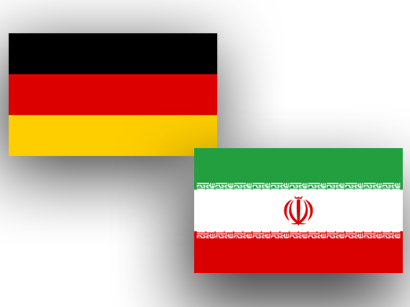Iran has discussed investments in its oil-and-gas and petrochemicals industries with German officials, in the event that Western sanctions are lifted, the country's oil minister said Thursday, The Wall Street Journal reported.
The private meeting between Bijan Zanganeh of Iran and German Energy Minister Sigmar Gabriel on Thursday in Berlin represented arare encounter for senior officials from Iran and a Western government outside of talks negotiating on the Persian Gulf country's nuclear program.
"We are trying to prepare the basis for better cooperation when sanctions are lifted," Mr. Zanganeh said in an interview ahead of a speech at an energy conference here.
Germany's economy and energy ministry declined to comment.
Iran has been courting Western companies and government officials ahead of a June 30 deadline to complete an agreement over its contested nuclear program. In exchange for an eventual lifting of sanctions, Iran would be allowed to enrich only a limited amount of uranium.
U.S. and European sanctions have crippled the Iranian economy since they were stepped up in 2010, while western pressure on Russia and Asian countries have reduced their business in Iran. Once the world's second largest exporter of oil behind Saudi Arabia, Iran's production has fallen to about 2.7 million barrels a day, down from around 4.2 million barrels a day in 2010.
Mr. Zanganeh said the discussions between the two men included the sale and purchase of petrochemicals and investments in Iranian oil and gas projects, through the transfer of technology and engineering contracts.
But, the Iranian oil minister poured cold water on expectations that Tehran would help diversify natural gas supplies to Europe any time soon. Iran has some of the world's largest untapped natural-gas reserves, but Mr. Zanganeh said jumpstarting exports to Asia, not Europe, was a priority.
"We didn't come to discuss" oil and gas sales to Germany, he said.
Mr. Zanganeh said gas prices were too low in Europe and transporting gas there from Iran faces legal obstacles and costly fees. For example, if Iran wanted to export gas to Europe, it would likely go through Turkey, where it could be subject to transit fees.
Separately, he said another option for Iran's gas-liquefying it and exporting by ship-had been set back by sanctions, which prevented western technology from reaching his country. Liquefied natural gas is the most suitable option to sell gas to Europe, he said, but that option won't be available for another three years.
In a speech and question-and-answer session here at the Energy Security Summit 2015, Mr. Zanganeh said his country's oil and gas reserves were underdeveloped.
"Iran cannot have the third or fourth largest oil reserves in the world and export as much as [medium-sized producer] Azerbaijan," he said.
The minister said Iran could ramp up production to 4 million barrels a day in eight months. By 2018, he said, Iran could be pumping 5.7 million barrels a day if sanctions are lifted this year. Only Saudi Arabia, the U.S. and Russia produce more.
Mr. Zanganeh also said he expected the Organization of the Petroleum Exporting Countries to adjust crude oil output to allow for Iran's exports, which he said was his country's "right" to increase.






